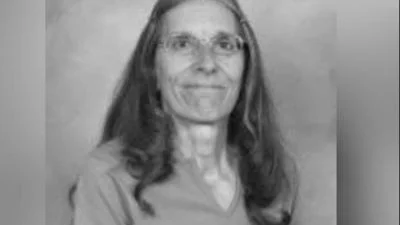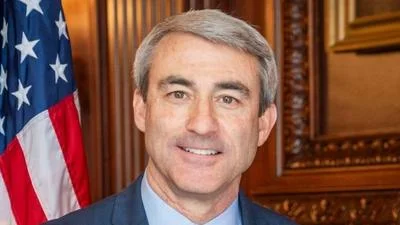Joy Goeben, Wisconsin State Representative of 5th District | Facebook
Joy Goeben, Wisconsin State Representative of 5th District | Facebook
According to the Wisconsin State Legislature's official website, the bill was described as follows: "prohibiting persons who have been convicted of a violent crime from changing their name and providing a penalty".
The following is our breakdown, based on the actual bill text, and may include interpretation to clarify its provisions.
In essence, this bill prohibits individuals convicted of violent crimes, defined in the bill to include offenses such as homicide, battery, kidnapping, stalking, human trafficking, and sexual assault, from legally changing their names. Violating this prohibition results in a Class H felony. The bill amends several existing statutes to incorporate this new restriction, ensuring that individuals convicted of these crimes are prevented from evading identification through name changes. The prohibition overlaps with existing restrictions on name changes for registered sex offenders. Additionally, it is specified that an individual cannot be convicted under both this bill and an existing statute for incidents stemming from the same event. The bill's effective date is not explicitly mentioned.
The bill was co-authored by Senator Van H. Wanggaard (Republican-21st District), Representative Elijah R. Behnke (Republican-6th District), Representative Lindee Rae Brill (Republican-27th District), Representative Daniel Knodl (Republican-24th District), Representative Rob Kreibich (Republican-28th District). It was co-sponsored by Senator André Jacque (Republican-1st District) and Senator Steve L. Nass (Republican-11th District), along six other co-sponsors.
Joy L. Goeben has co-authored or authored another 36 bills since the beginning of the 2025 session, with none of them being enacted.
Goeben graduated from the University of Wisconsin-Green Bay in 1997 with a BS.
Goeben, a Republican, was elected to the Wisconsin State Assembly in 2023 to represent the state's 5th Assembly district, replacing previous state representative Jim Steineke.
In Wisconsin, the legislative process starts when a senator, constituent, group, or agency proposes an idea for a bill. After drafting, the bill is introduced, numbered, and referred to a committee for review and public input. If approved, it moves through three readings and votes in both the Senate and Assembly. Once both chambers pass the same version, the bill goes to the governor, who can sign it, veto it, or let it become law without a signature. Only a small share of bills introduced each session ultimately become law. You can learn more about the Wisconsin legislative process here.
| Bill Number | Date Introduced | Short Description |
|---|---|---|
| AB124 | 03/11/2025 | Prohibiting persons who have been convicted of a violent crime from changing their name and providing a penalty |
| AB123 | 03/11/2025 | Calculation of miles for purposes of relocation of a child 100 miles or more from the other parent in an action affecting the family |
| AB105 | 03/10/2025 | The distribution of certain material on the Internet |
| AB56 | 02/24/2025 | Requiring the display of the national motto in public schools and on public buildings. (FE) |
| AB53 | 02/24/2025 | Special circumstances battery to a community service officer and providing a penalty |
| AB40 | 02/17/2025 | School safety grants and making an appropriation. (FE) |
| AB11 | 02/06/2025 | Pelvic exams on unconscious patients and creating an administrative rule related to hospital requirements for pelvic exams on unconscious patients |






 Alerts Sign-up
Alerts Sign-up